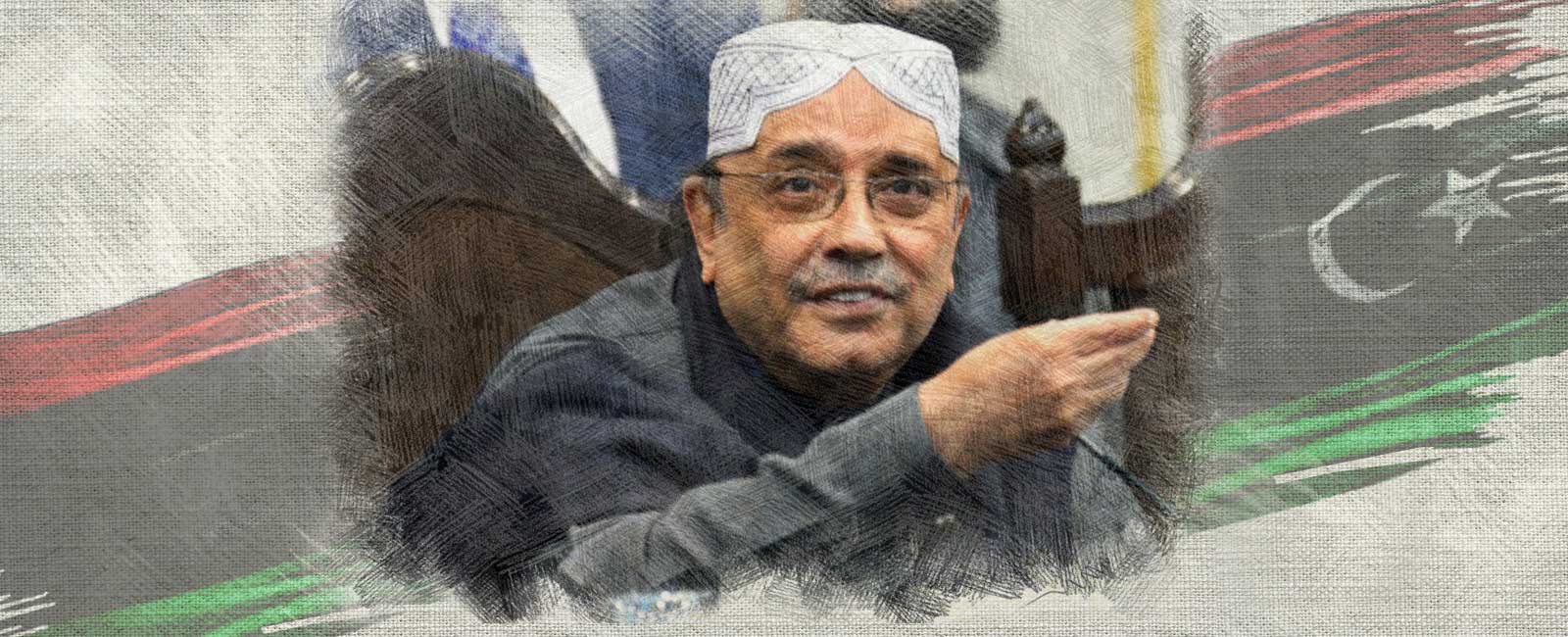Asif Ali Zardari: From polo to politics

In the backwash of one of the worst political turmoils sparked off by the shocking assassination of former prime minister Benazir Bhutto (BB) at the end of 2007, Pakistan’s political landscape saw a seismic shift in the days to come.
From that ultimate chaos that followed, the Pakistan People's Party (PPP) emerged as a force to reckon with in the general elections of 2008.
Just a month after the profound loss of Bhutto, the PPP stood tall, poised to take the reins of government at the centre in a coalition with Pakistan Muslim League-Nawaz (PML-N).
At that time, there were all kinds of speculations in the power corridors in Islamabad about the future PM and president.
Many thought that the prime minister would certainly be from the PPP but the latter might offer Presidency to PML-N.
I got an opportunity to interview Asif Ali Zardari (AZ), spouse of the late BB, whose slogan, "Pakistan Khapay" (We want Pakistan) draws a lot of appreciation from a cross-section of society.
As I walked into Zardari House, Islamabad, I was greeted by a smiling Farhatullah Babar, whose association with the party and with AZ is known to everyone. Zardari delayed the interview and asked me to talk about the formal interview. We went to a separate room and discussed the post-BB political situation.
Then he asked me: “What do you think? Should I take any government position?" “It's up to you and your party to decide and I believe you must have already made up your mind. But, since you asked me, [I must say] as you already are heading the party you should not keep two positions,” I replied. During the formal interview, my first question was: “Am I interviewing a future head of government?” “A jiyala will be there,” he replied with a smile but did not give a name. After the interview, he told Farhatullah: "I told you, he would not ask questions he had sent you”.
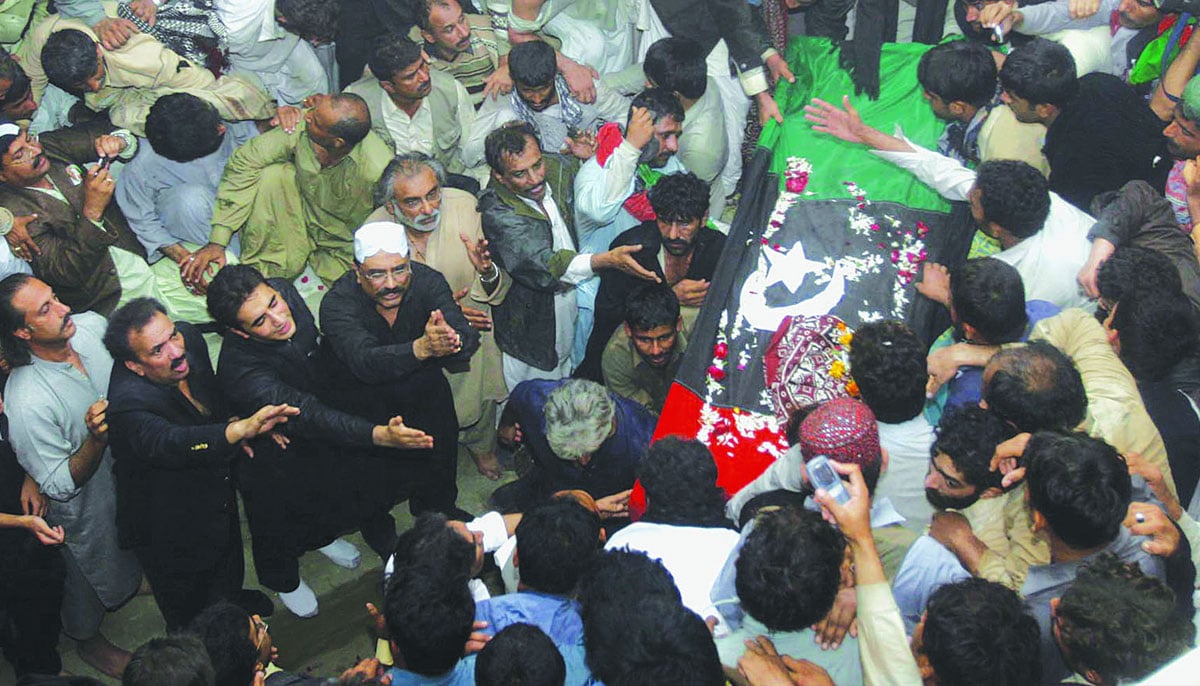
During my journalistic career, I had many on-the-record and off-the-record conversations with him in the presence of Benazir Bhutto and also one-on-one. Once he was being escorted to Islamabad from Karachi and it was a mere coincidence that I was also travelling to Islamabad. He saw me and asked me to have a chat.
During the conversation, he asked me: “Why don't you bring out a newspaper from Islamabad? Prepare a team and I will support you”. I smiled and said: “I can suggest you a few good names for the job but I am happy where I am”. He later did launch a paper, titled, ‘The Democrats’ from Islamabad. His college day friend Abbasi Rizvi headed the paper and some very notable names like Abid Ali Syed, Idrees Bakhtiar, and others joined it.
Arguably Pakistan's most controversial politician, former president Asif Ali Zardari belongs to a political family. His father late Hakim Ali Zardari, before joining the PPP had been active in the left-wing National Awami Party (NAP) and was among critics of some of the policies of executed prime minister Zulfiqar Ali Bhutto, especially the banning of NAP. But, AZ has a special political instinct in him as narrated by one of his college day's friends Abbas Rizvi, who was with him at Cadet College Petaro, Jamshoro.
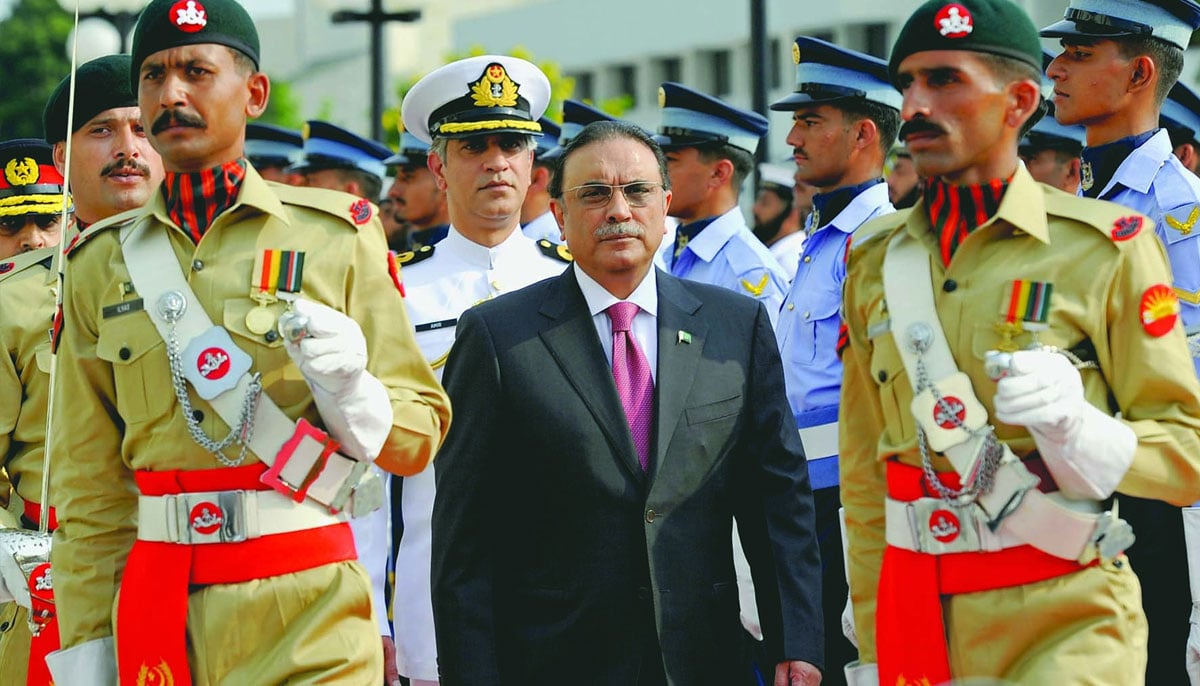
"In Petaro, students have different houses, Ayub, Jinnah, Liaquat, etc. He was the captain of one of the houses, I think it was Ayub or Jinnah House," he tried to recollect.
He has always been a good polo player and used the game trick in politics also. Interestingly, one of his political rivals Imran Khan was a cricket legend and used his cricketing skill in politics as well.
"Most misunderstood person"
"Zardari is the most misunderstood person," said Farhatullah Babar, when I asked him to comment on his personality with so many controversies and unanswered questions and accusations.
"Some called him a friend of friends, Mard-e-Hur, and Asia's Mandella. Others particularly after his wife Benazir Bhutto became the prime minister, painted him a villain and a wheeler-dealer," he said.
He may not have been to schools in Oxford or Cambridge but in the end, he had himself acquitted remarkably well, perhaps more than any other contemporary Pakistani leader, Babar defended him.
"He (AZ) is profoundly modest as never gets tired of telling me that he is not even a patch on BB,” Babar said.
A political marriage?
During my early days in journalism, I met Hakim Ali Zardari at my aunt Dr Alia Imam's house. Later, interviewed him a few times for ‘The Star’ and monthly ‘Herald’. In one of the interviews after the wedding of Asif Ali Zardari and Benazir Bhutto, he confirmed that it was a sort of arranged marriage due to the old friendship between his wife and Begum Nusrat Bhutto. After the hanging of Zulfiqar Ali Bhutto, the former NAP leader changed his views about Bhutto, became his staunch supporter and joined the PPP.
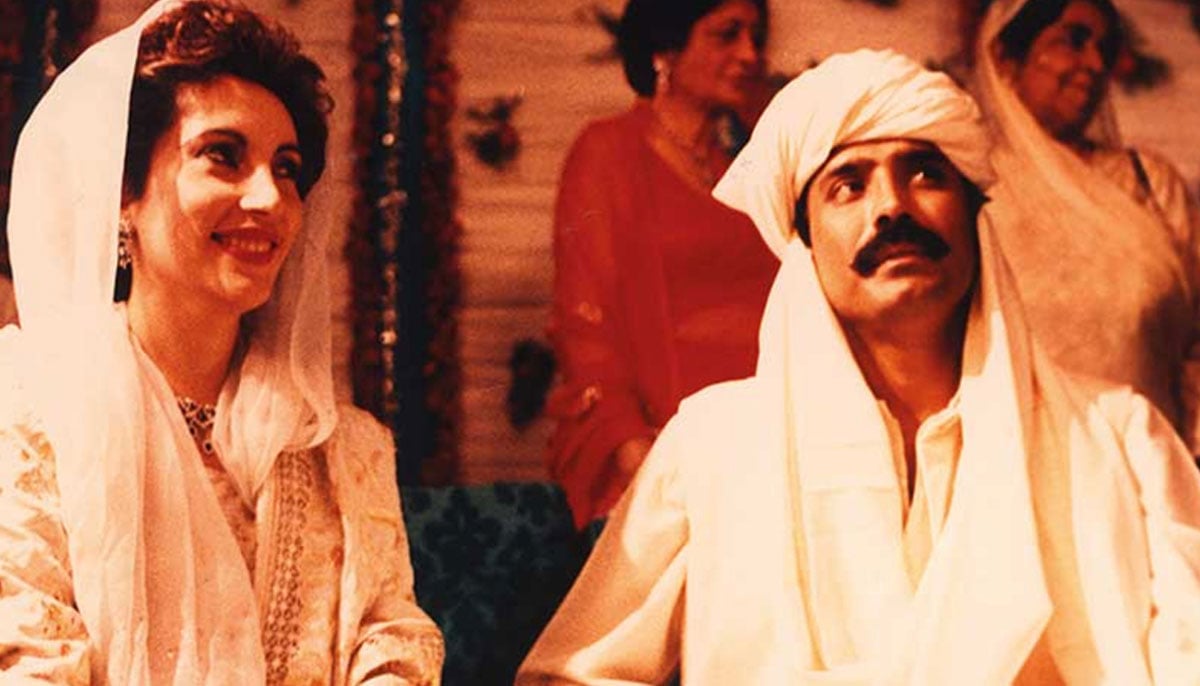
Asif Zardari for the first time made an impact on the political arena when otherwise inexperienced prime minister, Benazir Bhutto faced a 'vote of no confidence' in 1989. It was shocking for her because she had agreed with some of the preconditions of the then establishment and even supported and voted for former president Ghulam Ishaq Khan against her old MRD (Movement for the Restoration of Democracy) leader, Nawabzada Nasrullah Khan.
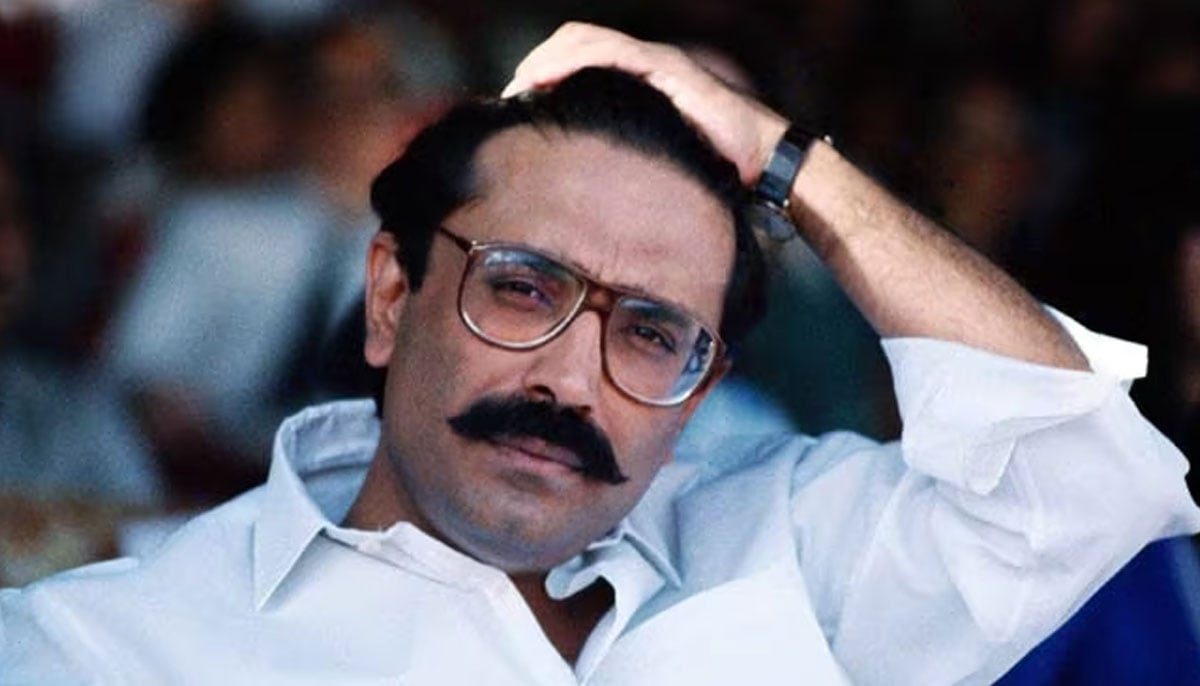
The presidency, the former army chief General Aslam Baiq (Islami Jamhoori Ittehad President), and Punjab chief minister, Nawaz Sharif were all behind the move and even got the support of Muttahida Qaumi Movement (MQM), which till then was in coalition with BB. It was at that crucial juncture when Asif Ali Zardari assured her that he would make sure the vote of no confidence failed and he did it as BB’s office was saved by two votes. Accusations and counter-accusations of horse-trading came from both sides but in the end, Benazir's government survived and she often gave the credit for it to her spouse.
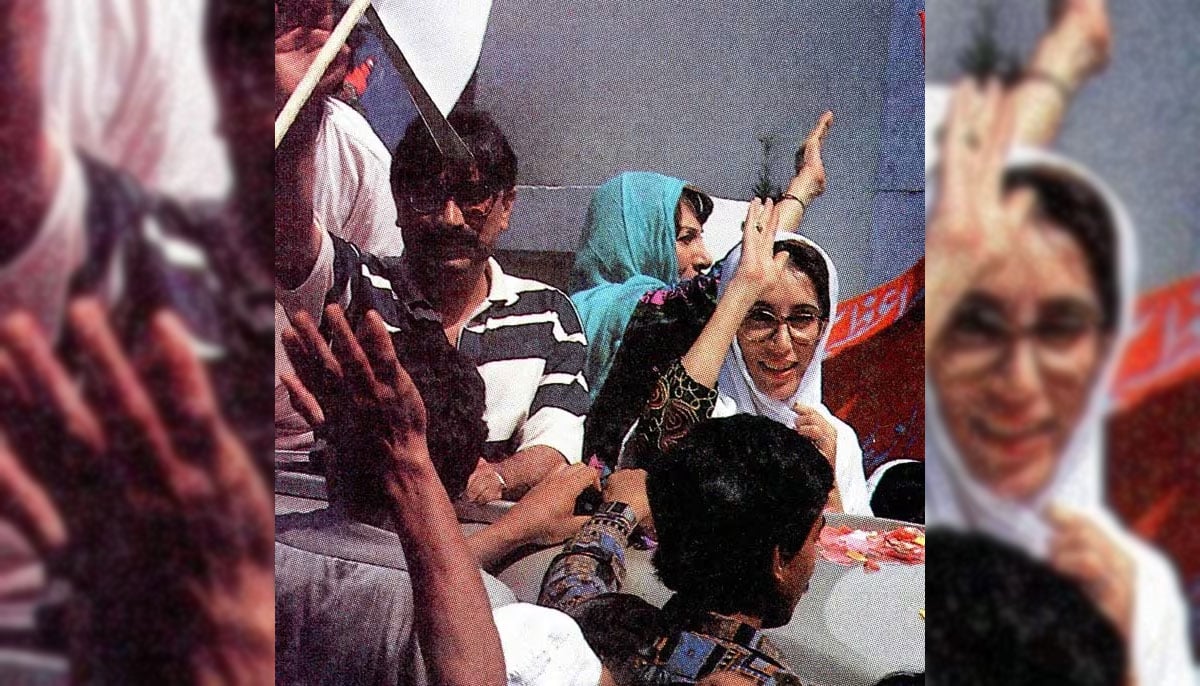
Within a few months after a vote of no confidence was defeated then-president Ghulam Ishaq Khan dismissed her government on charges of corruption and levelled serious accusations on Asif Ali Zardari and for the first time in the media he was branded as 'Mr Ten Per Cent’.
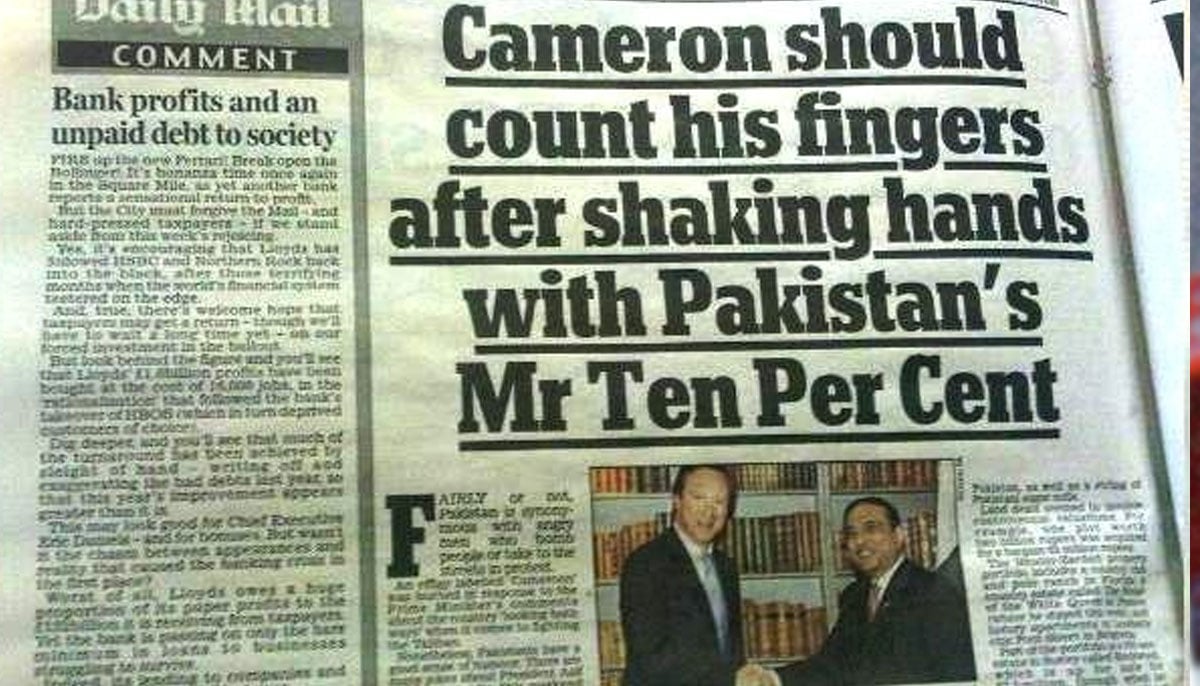
Benazir Bhutto in a press conference at Bilawal House a few days after her dismissal directly accused 'Military Intelligence' of being behind the move and planted stories against her government.
Central Jail Karachi: Zardari's second home
It was the beginning of another phase for AZ as for the first time he was arrested for different criminal and corruption charges including a role in the kidnapping of Punjabi Businessman Bokhari, the case which was particularly mentioned in the charge sheet by GIK when he invoked Article 58-2 (B).
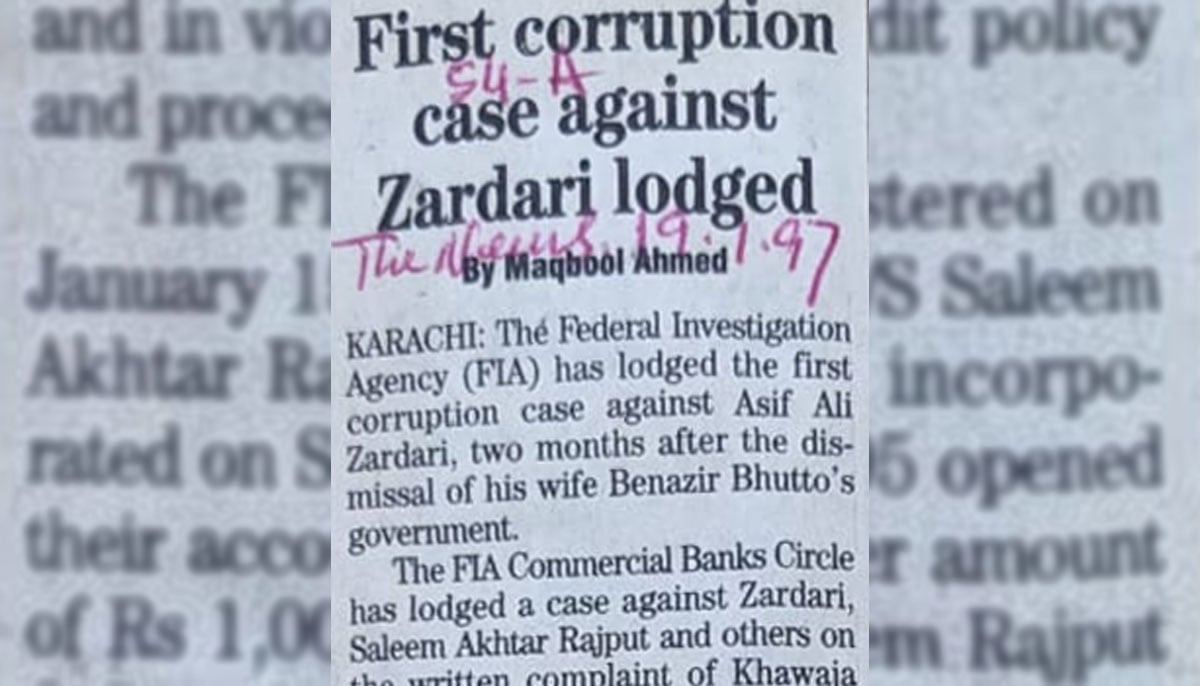
In the next few years Central Jail, Karachi, became his second home. During all these years he faced many serious charges including three murder cases, corruption cases like that of purchase of Surrey Palace, Swiss Account etc. Benazir Bhutto's second government was dismissed in 1996, but this time by her own handpicked party's President Sardar Farooq Leghari, under the same infamous constitutional provision Article 58-2 (B).
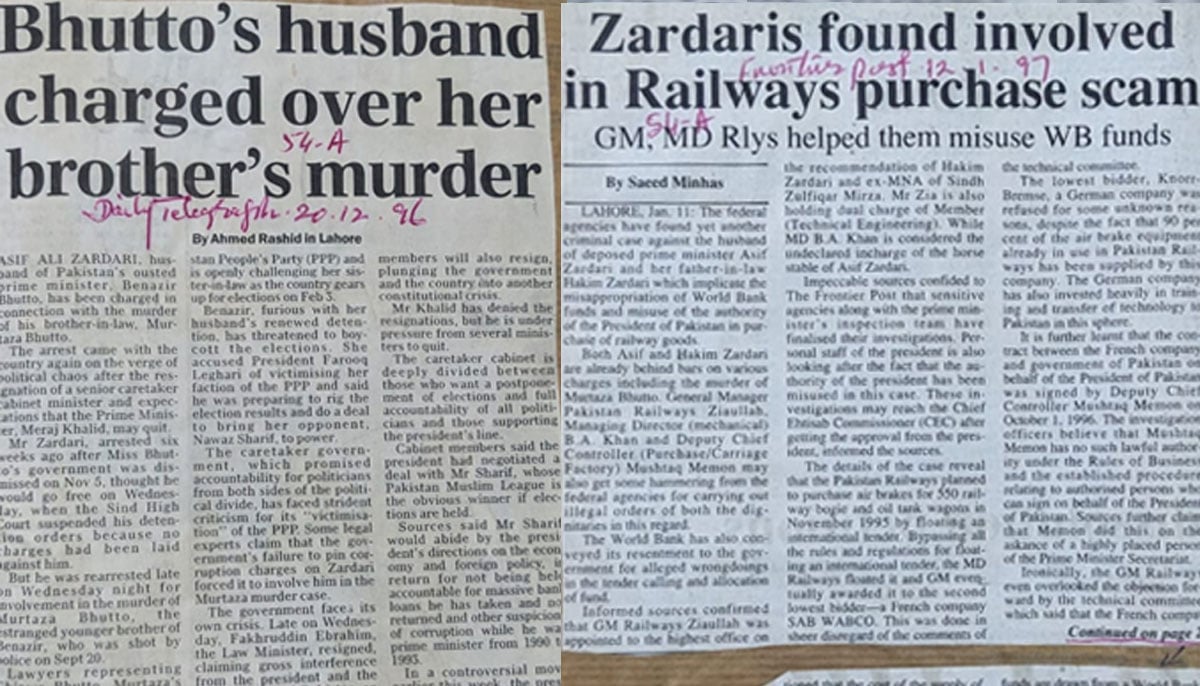
For the second time also AZ was at the centre of controversy.
After his marriage with BB, AZ could either be found at the PM House or in prisons. One of the superintendents at the Central Jail Karachi told me that during his years in prison, he spent a lot of money to make his prison life comfortable.
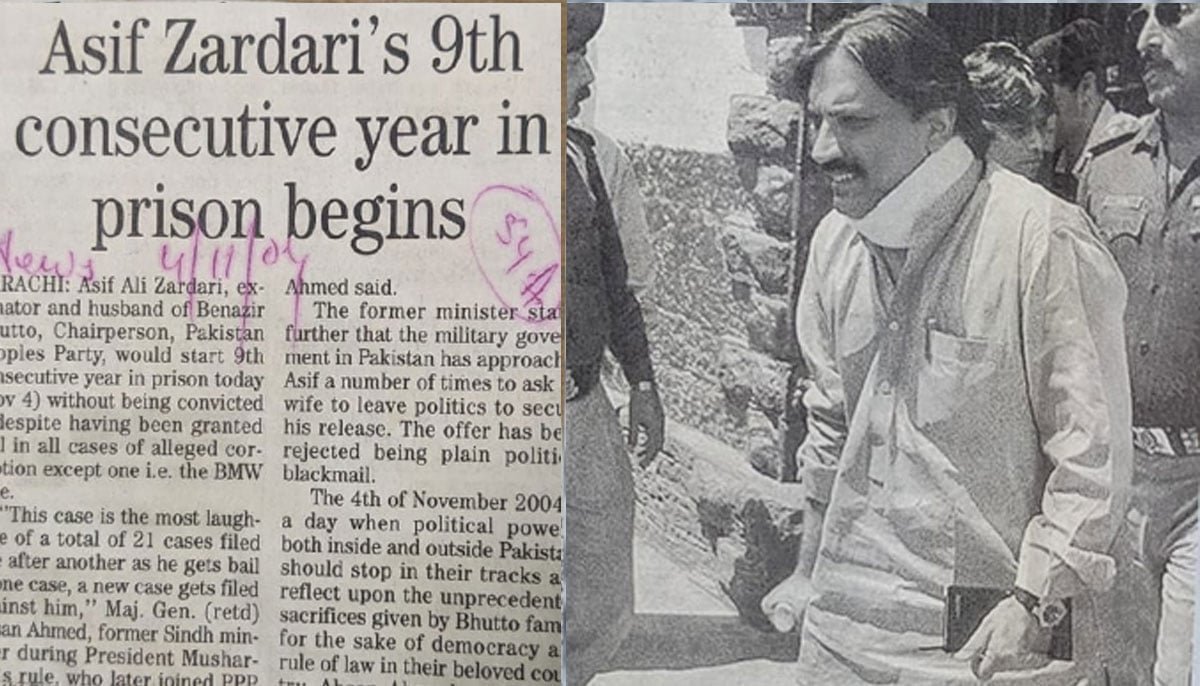
Zardari's style of politics is not populist. It's not that he never tried, he did, even when Benazir Bhutto was alive; however, for one reason or another he failed but his critics always admitted and in a way admired him for his art of politics and he succeeded in making and breaking governments and parties.
Asif Zardari also had a key role in the famous and controversial National Reconciliation Ordinance (NRO) in 2007, between former president General Pervez Musharraf and Benazir Bhutto, which led to the withdrawal of many cases against them.
However, BB refused to accept Mushrraf's condition that she would stay out of the country till the elections and decided to return on October 18, 2007.
Scepticism over BB's return to Pakistan in 2007
Both BB and AZ had a long discussion before she embarked on what turned out to be her 'fatal journey' and created a leadership vacuum that sucked AZ into hardcore politics. Musharraf told her in his typical style that he could not guarantee her safety if she returned home before the polls.
Asif Ali Zardari advised her to postpone it but she was determined and perturbed over Musharraf's 'warning'.
“Asif and I had made a very calculated, difficult decision. We understood the danger and the risk of my return, and we wanted to make sure that no matter what happened, our daughters and our son Bilawal would have a parent to take care of them. It was a discussion that few husbands and wives ever have to have but we become accustomed to life,” BB narrated her journey in her book, Reconciliation: Islam, Democracy, and the West.
On October 18, 2007, she survived one of the most devastating suicide attacks on any political rally which claimed 180 lives.
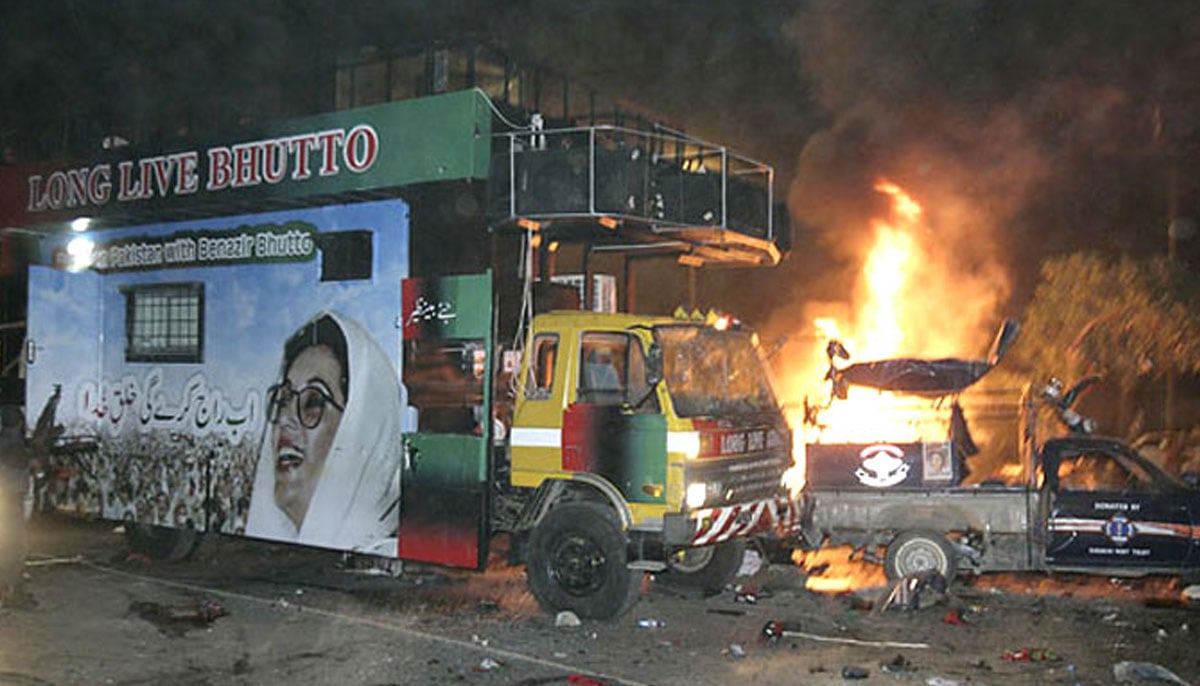
She asked Asif to look after the children as she knew that her life could be in danger and she was martyred on December 27, 2007, while returning after addressing her last public meeting just before elections at the famous Liaquat Bagh, Rawalpindi.
After this, elections were postponed for a few weeks.
AZ never wanted to become the president. But that was until he met Nawaz Sharif soon after the PPP won the 2008 election. Later, he would surprise his core team by announcing his decision to run for the presidency.
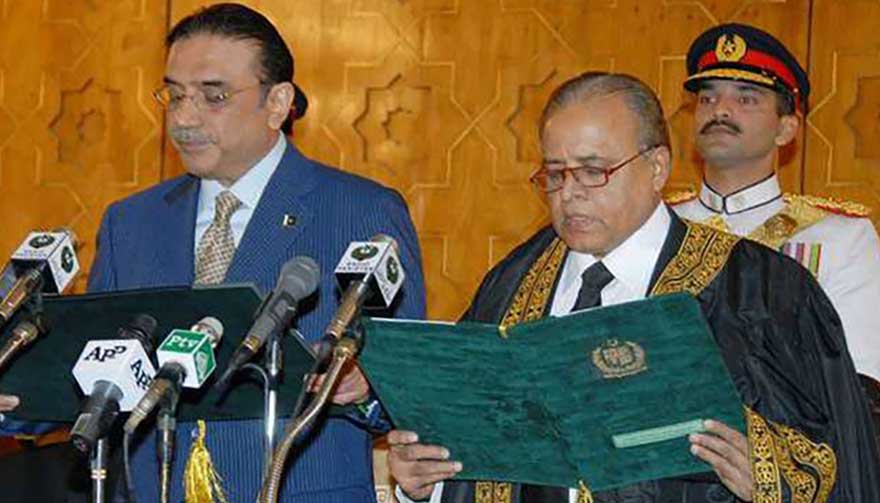
A President who strengthened democracy
Zardari will be remembered as the president who, in the spirit of parliamentary democracy, encouraged and helped the parliament transfer important powers from the office of the president to that of the prime minister. These included the chair of the National Command Authority (NCA) — the apex decision-making body for nuclear matters.
He never became the popular politician as Zulfiqar Ali Bhutto or Benazir Bhutto were but he certainly learnt – some may argue, even mastered – the art of possibilities.
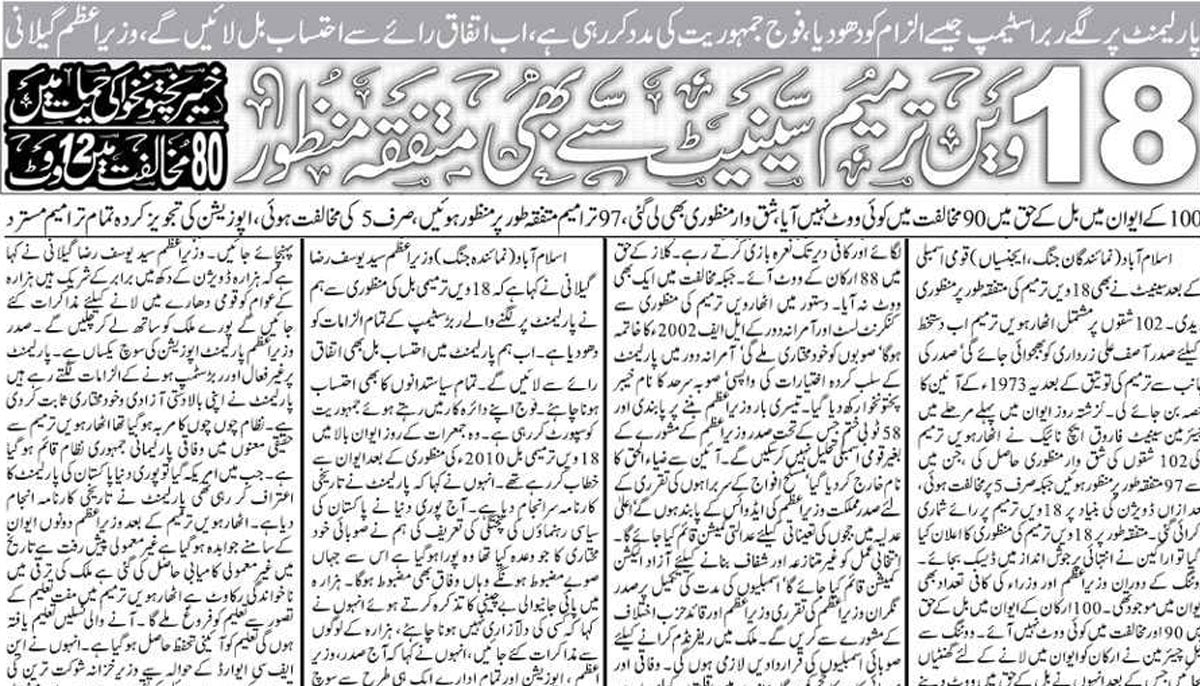
Having long been accused of corruption as “Mr Ten Per Cent” and jailed for many years, being elected president was no ordinary feat even if some of his critics said he sought the office on account of the immunity from the prosecution that went with it.
The story of his rise to the presidency goes back to 2008. A close associate told this scribe that Zardari had surprised even his advisers when he disclosed that he had decided to run for president as he believed that that office could be used by the establishment to destabilise the PPP government.
He once told an aide that Sharif too wanted to be president and had offered to extend support to the PPP in the formation of the government. Zardari had other ideas.
Perhaps, Zardari had sensed something after meeting Nawaz Sharif.
Remarkably, while Zardari succeeded in making the presidency ‘toothless’, he also managed to keep control over all crucial decisions taken by the prime minister during his tenure. He also kept a tight grip on the party following the assassination of its charismatic leader, Benazir Bhutto.
Learnings from the past
In 1993, when Benazir Bhutto became the prime minister, she nominated one of her trusted associates, Farooq Leghari, as president. All was well until Leghari developed differences with Zardari, and once even complained about him to Bhutto.
But his grievances were not addressed. When Mir Murtaza Bhutto was killed in 1996, the relationship between the presidency and the PM House was already strained. Benazir Bhutto soon sensed that her man was no longer to be trusted.
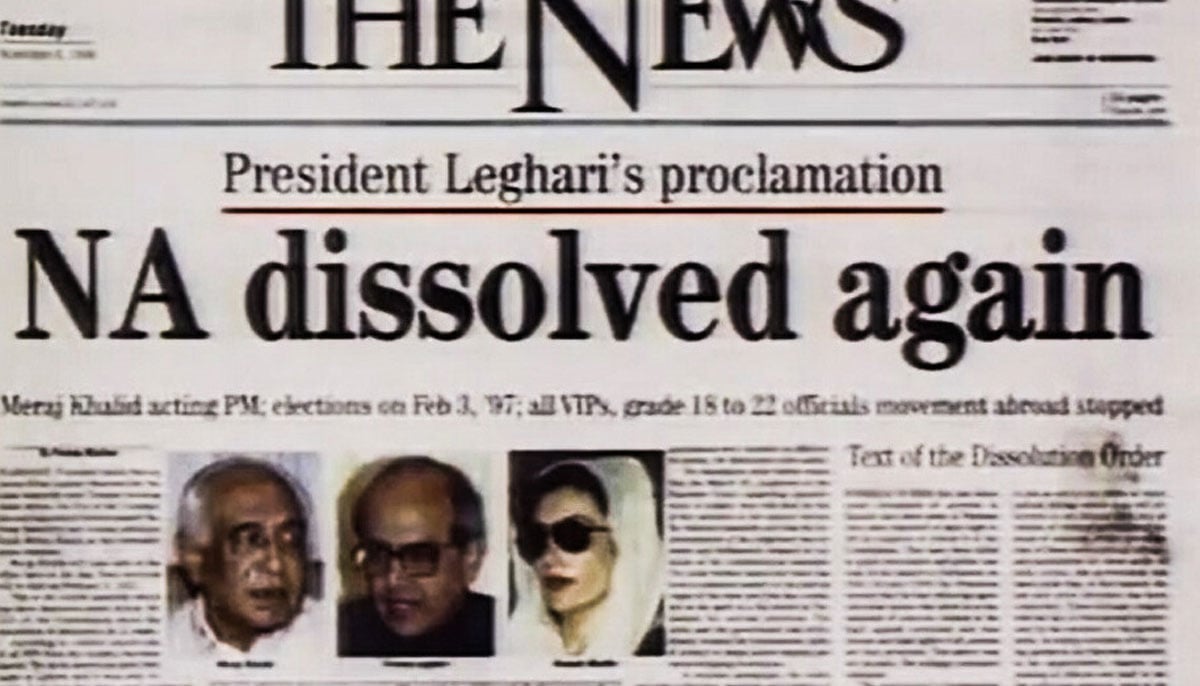
Zardari certainly empowered the parliament during his tenure as the president but some believe that he weakened the PPP — once the most powerful party in the country.
Passing the baton to Bilawal
Zardari wants to see his son become the prime minister. The challenge for Bilawal Bhutto Zardari lies in the fact that the party he heads is quite different from the PPP of Zulfikar Ali Bhutto and Benazir Bhutto days. A million-dollar question remains what role AZ will have after the February 8 general elections?
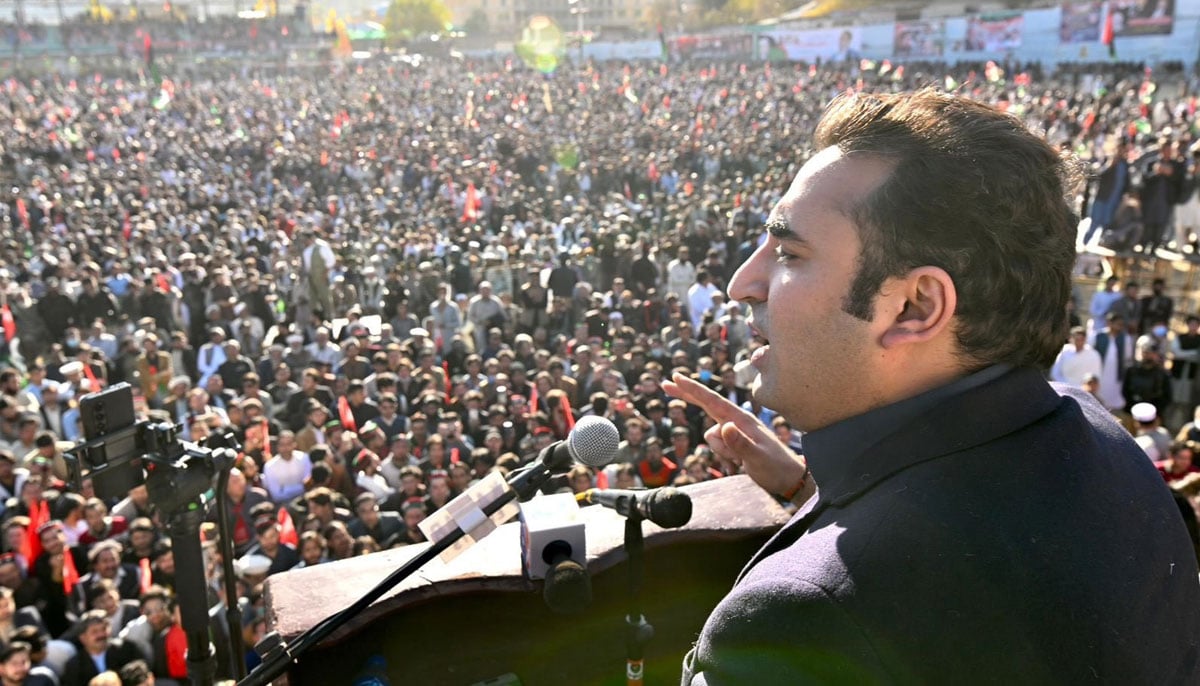
Can't say how history would remember him in Pakistani politics but one thing is certain you can agree with him, you can disagree with him but you can't ignore him as he knows the art of possibilities and surprises. One area in which he tried but failed is 'populist politics'.
Asif Ali Zardari created history when he became the first president under a civilian set-up and peacefully handed over power to his successor with grace after completing his full five-year term.
The writer is a columnist and analyst at Geo News, The News and Daily Jang. He posts @MazharAbbasGeo
— Header and thumbnail design by IMM Creative



